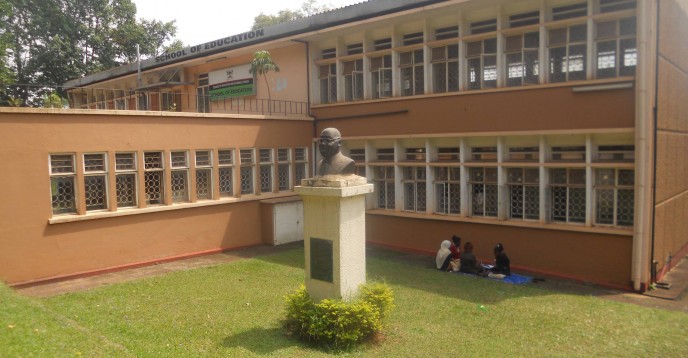
MOBILE PHONE APPS SUPPORTED INSTRUCTIONAL RESOURCES AND LEARNING OF CHEMISTRY: A CASE OF RESOURCE-CONSTRAINED PRIVATE SECONDARY SCHOOLS IN WAKISO DISTRICT-UGANDA
By: Luyima Jimmy
Supervisors:
Dr. Walimbwa Michael
Dr. Sentongo John
Abstract
This study focused on mobile phone application tools (Apps) and learning of chemistry in resource-constrained privately owned secondary schools, in Wakiso district. With a growing number of students facing the challenge of access to physical science instructional resources from their respective schools, this study attempted to explore one of the possible alternatives to address the challenge, by particularly investigating the effect of integrating WhatsApp-supported chemistry instructional resources in out-of-classroom teaching and learning.
Informed by the social learning theory and the community of inquiry model, and using lenses of the pragmatic philosophical orientation, this study adopted a mixed methods approach, taking on a quasi-experimental pretest-posttest nonequivalent group design. Solomon’s four-group design was particularly employed because of its high internal and external reliability and validity. Quantitative data was collected using a SAQ and a chemistry process skills test on a sample of 240 students from four different schools. The data were analyzed using the independent and paired samples t-test, to establish whether there was a statistically significant difference between the experimental and control groups. Qualitative data was collected using an interview and observation guide, from 12 students and four teachers, which was analyzed thematically. This was used to supplement the quantitative findings.
The study findings revealed that the integration of the WhatsApp-supported chemistry instructional resources in form of videos, photos, audio, and text outside the classroom setting improved the teacher-student interactions outside the classroom, the students’ chemistry process skills and attitude towards chemistry, and students were positive about using mobile phones for learning. Based on these findings, it was concluded that the integration of WhatsApp-supported chemistry instructional resources in out-of-classroom setting improves learning, as well as students’ willingness to use mobile phones for learning in resource-constrained schools. The study recommends that the different education stakeholders at different levels of education need embrace the use of mobile phones to support teaching and learning, particularly in science instructional resource-constrained schools. Therefore, the policy implication for this study points to the need by the Government to expedite the formulation of a policy on using the various ICTs, such as mobile phones for teaching and learning in schools.



